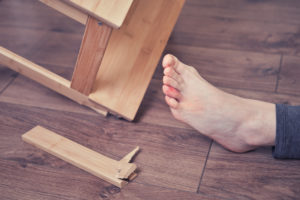Key Points:
- Nursing home staff members and caretakers in Georgia must abide by certain laws that protect residents from mistreatment and abuse.
- Any nursing home employee who is guilty of abuse is subject to criminal penalties, and the facility may be held responsible for monetary damages.
- If a facility has faced violations or penalties, it is required to inform the residents and family members.
When people are in their later years, they should not be subject to abuse from the very people who are supposed to care for them. The state of Georgia takes nursing home abuse seriously and has passed specific laws against misconduct.
Nursing homes and caretakers must abide by these laws and should always strive to protect their residents. The elderly are especially vulnerable to abuse, and when it happens, those responsible should be held legally accountable.
Here’s how Georgia laws protect nursing home residents from mistreatment.
Understanding How Georgia Law Defines Abuse
When the state of Georgia passed laws against nursing home abuse, they also sought to define what specific types of conduct or injuries are legally actionable. An overview of these terms and definitions will help you recognize that Georgia law covers a wide spectrum of conduct and injuries regarding nursing home abuse.
The important terms you should know are defined under Georgia Code § 30-5-3, and include the following:
Willful Infliction:
A caretaker or nursing home facility can be held liable for the willful infliction of physical pain, physical injury, sexual abuse, mental anguish, unreasonable confinement, or the deprivation of services. A willful infliction involves the caretaker doing something purposely or with extreme carelessness. A willful infliction requires the caretaker’s intent to have been for the resident to suffer harm in some way.
Physical Pain:
A nursing home can be the cause of physical pain for an elderly resident in several ways. Residents can suffer from kicks, punches, slaps, or any other forms of physical abuse. While not all of these actions might cause visible injuries, the harmful and abusive actions of a caretaker should be dealt with aggressively and harshly.
Physical Injury:
If a nursing home caretaker causes a physical injury, then a claim can be brought against the caretaker and nursing home for monetary damages. Some of the most common injuries suffered in nursing homes include:
- Injuries caused by bedrails
- Bone fractures
- Concussions
- Spinal injuries
- Bedsores
A nursing home resident can suffer from these or many other injuries when they have been a victim of nursing home abuse. It is important to know that the law allows for recovery for a wide variety of injuries.
Mental Anguish:
When a caretaker is verbally abusive to their residents and patients, it can cause mental anguish to the people they are supposed to be taking care of. Things such as yelling, making racist or sexist commentary, or the threat of physical harm can cause mental suffering for a nursing home resident, and the caretaker and nursing home may be held liable.
Unreasonable Confinement:
Unreasonable confinement involves a caretaker or nursing home locking a resident in their room or holding them from exercising their right to move freely and not be contained. If a nursing home is guilty of physically restraining or secluding a resident from others against their will, then the caretaker and nursing home can be held responsible.
Willful Deprivation:
Willful deprivation involves a caretaker or nursing home staff purposely depriving its residents of basic necessities, such as food, water, or required medical care. Elderly residents often need food and water to take with prescribed medicine, and the lack of adequate food and water can lead to other health issues.
Nursing Home Abuse Is a Criminal Offense in Georgia
The laws in Georgia are compiled into what is known as the Georgia Code. Georgia Code Title 30 Chapter 5 Section 8 is where you will find that nursing home abuse is a crime in our state.
Any caretaker or other nursing home employee who is guilty of abuse is subject to criminal penalties. Typically, the nursing home will face a civil lawsuit, while the guilty employee faces criminal charges. Nursing home abuse in Georgia is classified as a misdemeanor.
Laws That Allow for Elder Residents and Family to Sue
Elders and their family members may be able to recover for injuries suffered at a nursing home under several sections of Georgia law. The main chapters of Georgia law that can apply to nursing home abuse include:
- Georgia Code Title 31 Chapter 8
- Georgia Code Title 30 Chapter 5
- Georgia Code Title 31 Chapter 7
- Georgia Code Title 31 Chapter 21
The laws in these sections cover things such as nursing home requirements to stay up to code, potential criminal sanctions for abuse, and even how dead bodies are supposed to be handled. It is important to know what specific section of the law applies to you or your loved one to file a claim properly.
Other Georgia Nursing Home Requirements
Nursing homes have a significant responsibility when agreeing to take on the care of elderly people in their facilities.
Nursing homes must have a minimum number of staff for each facility based on the resident population. During the daytime, Georgia nursing home facilities should have at least one caretaker working on-site for every 15 residents. At night, these facilities are required to have at least one caretaker working on-site for every 20 residents. If a nursing home facility fails to maintain the minimum necessary caretakers, then they can be held liable for monetary damages.
If a facility has faced violations or penalties, it is required to inform the residents and family members.

 1201 West Peachtree Street #2339 Atlanta, GA 30309+1-770-212-3795$0-$100000
1201 West Peachtree Street #2339 Atlanta, GA 30309+1-770-212-3795$0-$100000Debbie was my case manager and she has provided exceptional service to me. I called or emailed her every time I had a question and she answered them right away. She made me feel completely safe throughout this entire process and I can’t thank her enough.

The Millar Law Firm Offers Free Consultations
If you or a loved one has suffered abuse within a nursing home, make sure you seek the advice of an experienced personal injury lawyer.
We can help. Call The Millar Law Firm today at (770) 400-0000 or contact us online to set up a free consultation with one of our attorneys.















